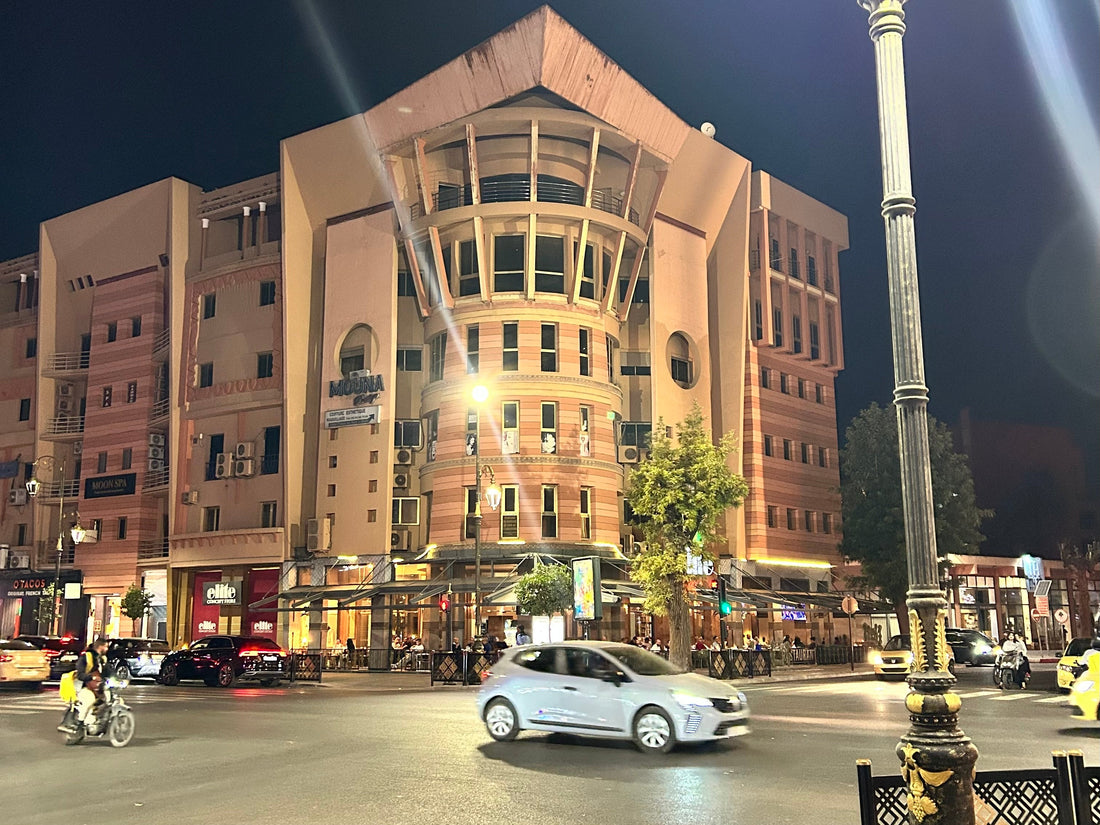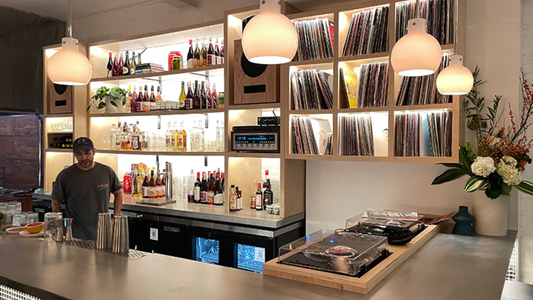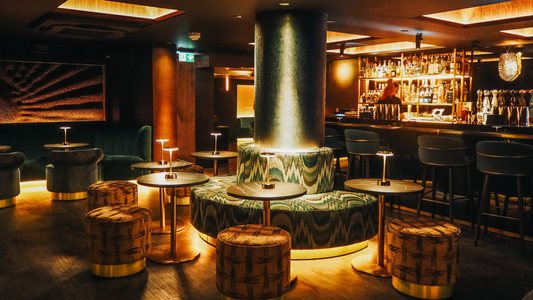
The White Noise of Marrakech
By Rafi Mercer
Marrakech has a pulse you can’t turn down. It’s not just a city of sound — it’s a city made of sound. Every hour hums with something: prayer, engines, markets, footsteps, shouts. The noise doesn’t layer itself politely; it collides. But somewhere in that collision, it becomes music.
This morning, I stood by an open window in Gueliz, the modern side of the city, and just listened. The air was thick with sound — motorbikes coughing through dust, taxis blaring horns in crooked rhythms, voices bargaining below, and somewhere, far off, the faint pitch of a police siren. Then, from a nearby mosque, came the call to prayer. The sound rose and fell with absolute grace, cutting through the same air that held the siren. It struck me that these two signals — order and devotion, control and surrender — were happening at once, perfectly coexisting in the same frequency.
And for some reason, it took me straight back to 1989, to a small, sweat-slick student hall where I first heard KRS-Oneperform “Sound of da Police.” I was at university then, studying less than I should and listening more than I realised. That night, the track hit me like a sermon. It wasn’t just hip-hop; it was truth set to rhythm — protest, purpose, pulse. The siren sample wasn’t just a sound effect; it was a signal. It told you the world was alive, alert, flawed, but still moving.
Now, standing in Marrakech all these years later, hearing real sirens cut through the call to prayer, I realised how timeless that frequency is. The meaning shifts, but the energy doesn’t. Back then, the sound meant resistance. Here, it means rhythm. The vibration of a city keeping itself awake.
That’s the thing about Marrakech: its soundscape isn’t curated, it’s instinctive. What elsewhere might feel like noise here feels like life. The city doesn’t separate the sacred from the secular. The muezzin’s voice flows through the same streets as the hum of diesel engines and the chatter of children. The rhythm of one becomes the counterpoint of the other.
For a while, I stood there thinking about white noise — that constant presence of sound that holds everything together. In some cities, white noise comes from air conditioning or traffic. Here, it’s alive. It breathes. It changes with the hour. It has rhythm.
When the call to prayer starts, the city doesn’t stop — it bends. People pause, adjust, realign. The sirens don’t fade; they just become part of the texture. And yet, there’s no dissonance. It’s harmony through contrast, unity through interruption.
I’ve always believed that music and life share the same architecture. Every sound has a role, even the ones that seem misplaced. The noise of the police — the sharp blast of authority — and the voice of faith — the long, soft invocation — both call people to attention. One says “look at what’s happening.” The other says “remember who you are.” Both, in their own ways, keep the city awake.
Later, sitting at a small café, I watched how the rhythm continued. Scooters zipped past like percussion fills. The café owner poured mint tea with the steady precision of a hi-hat. Somewhere behind the courtyard wall, a radio played Abdelhadi Belkhayat, his voice cutting through static like a trumpet through smoke. It’s easy to forget, in the comfort of our digital listening, that the world is its own orchestra — unmastered, unpredictable, raw.
That’s why I think I find comfort here. The sound of Marrakech doesn’t allow detachment. You can’t scroll past it, can’t mute it, can’t pause it. It asks you to listen — fully, presently — to everything. The imperfections, the interruptions, the human noise that modern life so often edits out.
As evening fell, I walked through the Medina again. The air had cooled, but the sound was still electric. The call to prayer rose once more, this time from a different mosque, slightly delayed, overlapping with another across the city — a kind of human reverb. For a moment, I thought about how far those frequencies travelled, bouncing off terracotta walls, across rooftops, down alleys. Sound as architecture. Faith as frequency.
Then a siren broke through again — distant, thin, almost melodic. And there it was: the same contradiction, the same coexistence. The city calling itself to order and to reflection at once.
In Marrakech, even white noise has colour. It’s not silence that connects things here, but energy. Every sound carries a purpose — even the ones we try to ignore. And if you listen long enough, you begin to hear what the city is really saying: stay awake, stay alive, stay present.
Rafi Mercer writes about the spaces where music matters.
For more stories from Tracks & Tales, subscribe, or click here to read more.







